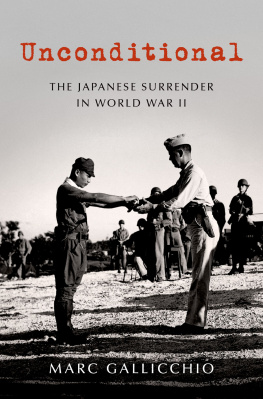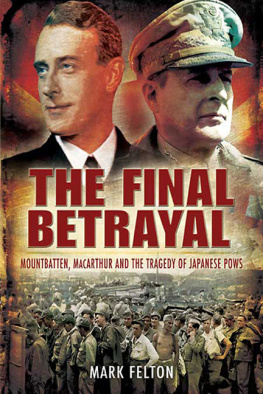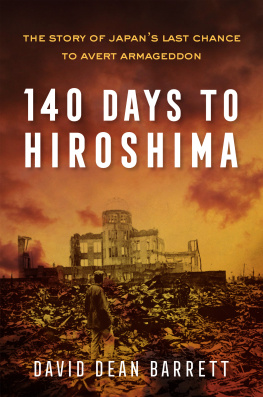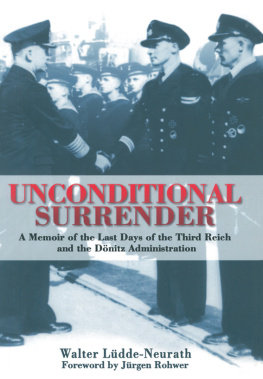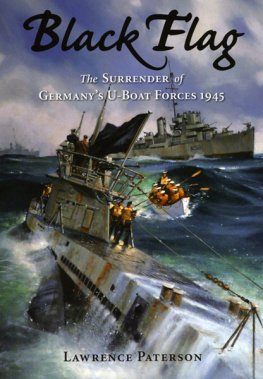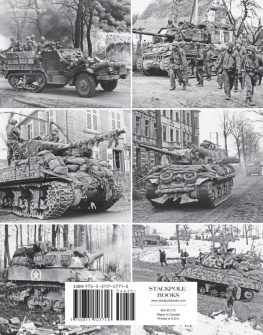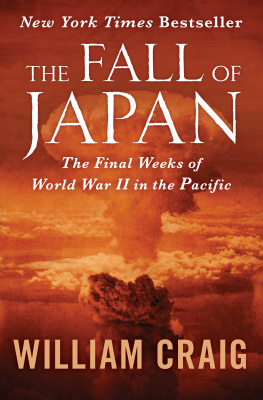UNCONDITIONAL
PIVOTAL MOMENTS IN AMERICAN HISTORY
Series Editors
David Hackett Fischer
James M. McPherson
David Greenberg
James T. Patterson
Brown v. Board of Education: A Civil Rights Milestone and Its Troubled Legacy
Maury Klein
Rainbows End: The Crash of 1929
James McPherson
Crossroads of Freedom: The Battle of Antietam
Glenn C. Altschuler
All Shook Up: How Rock n Roll Changed America
David Hackett Fischer
Washingtons Crossing
John Ferling
Adams vs. Jefferson: The Tumultuous Election of 1800
Joel H. Silbey
Storm over Texas: The Annexation Controversy and the Road to Civil War
Raymond Arsenault
Freedom Riders: 1961 and the Struggle for Racial Justice
Colin G. Calloway
The Scratch of a Pen: 1763 and the Transformation of North America
Richard Labunski
James Madison and the Struggle for the Bill of Rights
Sally G. McMillen
Seneca Falls and the Origins of the Womens Rights Movement
Howard Jones
The Bay of Pigs
Lynn Parsons
The Birth of Modern Politics: Andrew Jackson, John Quincy Adams, and the Election of 1828
Elliott West
The Last Indian War: The Nez Perce Story
Glenn C. Altschuler and Stuart M. Blumin
The GI Bill: A New Deal for Veterans
Richard Archer
As If an Enemys Country: The British Occupation of Boston and the Origins of Revolution
Thomas Kessner
The Flight of the Century: Charles Lindbergh and the Rise of American Aviation
Craig L. Symonds
The Battle of Midway
Richard Moe
Roosevelts Second Act: The Election of 1940 and the Politics of War
Emerson W. Baker
A Storm of Witchcraft: The Salem Trials and the American Experience
Louis P. Masur
Lincolns Last Speech: Wartime Reconstruction and the Crisis of Reunion
David L. Preston
Braddocks Defeat: The Battle of the Monongahela and the Road to Revolution
Michael A. Cohen
Maelstrom: The Election of 1968 and American Politics
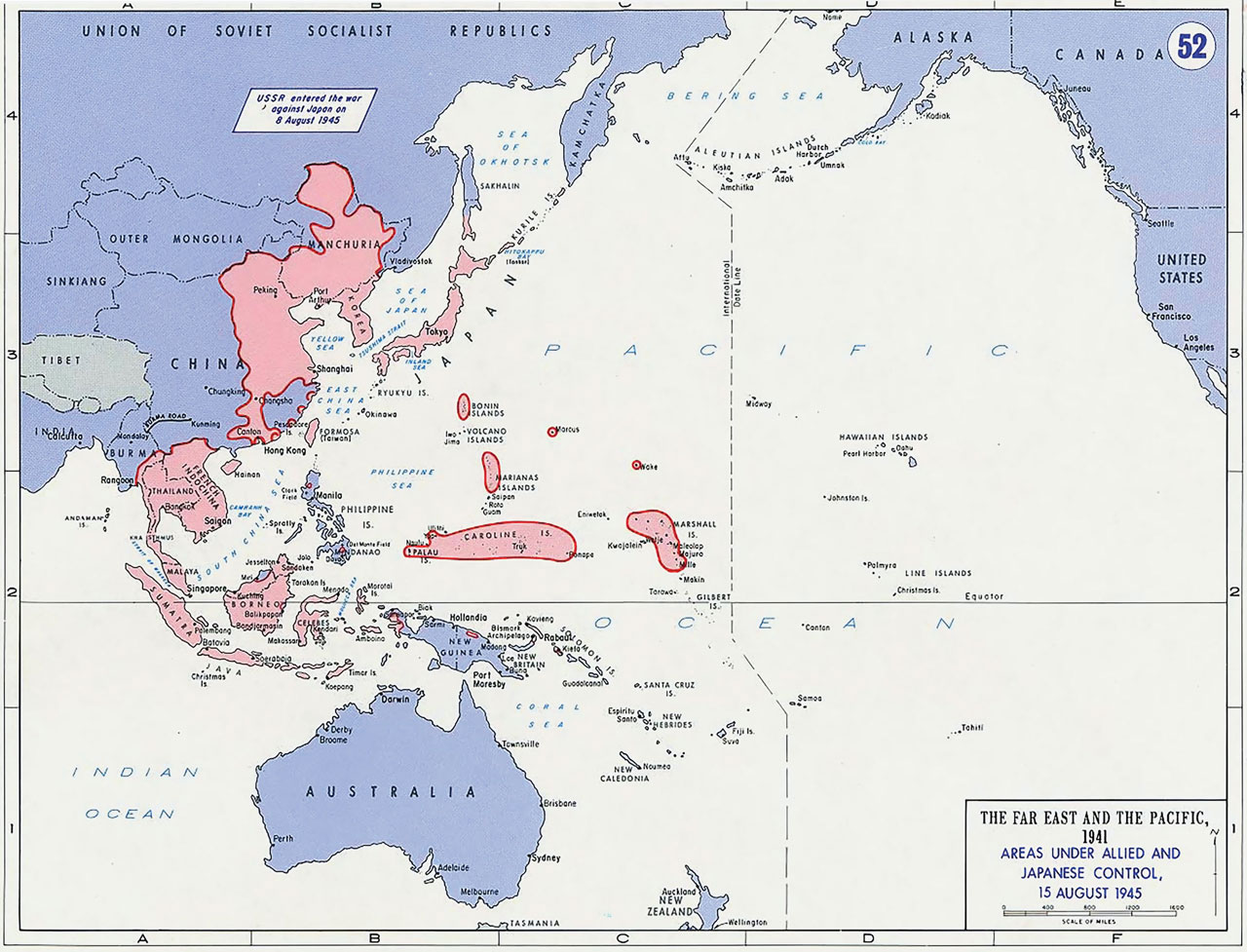
The Far East and the Pacific. Areas Under Allied and Japanese Control, 15 August 1945. Courtesy of Department of History, U.S. Military Academy.

Oxford University Press is a department of the University of Oxford. It furthers the Universitys objective of excellence in research, scholarship, and education by publishing worldwide. Oxford is a registered trade mark of Oxford University Press in the UK and certain other countries.
Published in the United States of America by Oxford University Press
198 Madison Avenue, New York, NY 10016, United States of America.
Marc Gallicchio 2020
All rights reserved. No part of this publication may be reproduced, stored in a retrieval system, or transmitted, in any form or by any means, without the prior permission in writing of Oxford University Press, or as expressly permitted by law, by license, or under terms agreed with the appropriate reproduction rights organization. Inquiries concerning reproduction outside the scope of the above should be sent to the Rights Department, Oxford University Press, at the address above.
You must not circulate this work in any other form and you must impose this same condition on any acquirer.
CIP data is on file at the Library of Congress
ISBN 978-0-19-009110-1
eISBN 978-0-19-009112-5
For Sam and Isabelle, unconditionally
Contents
I have worked on this project on and off for many years. I was able to present a very early version of it at Tohoku and Doshisha Universities in Japan as Fulbright Lecturer in 19981999. Other projects intervened, and in 2014, when I had started up again in earnest, I was called away by the opportunity of a lifetime: the chance to work with my mentor, Waldo Heinrichs. Waldo was also my friend and my first reader for nearly forty years. He passed away while I was working on this book. My enjoyment in finishing this project has been greatly diminished by not being able to seek his advice and share my findings with him.
I am very grateful for the funding I received to conduct the research for this project. I wish to thank the Provosts Office at Villanova University for two faculty research grants, the Department of History for use of the Albert Lepage faculty research fund, and the Harry S. Truman Library.
Two of my graduate assistants at Villanova, Thomas Foley and Christopher Mengel, were a great help in locating materials for this book. I am thankful for the support of my colleagues in the Department of History at Villanova who have made working there such an enjoyable experience. In particular, I want to thank Lynne Hartnett and Paul Rosier for their advice and wise counsel at the very last stages of this project, Vicki Sharpless for help with computer-related questions, and Frances Murphy for her invaluable assistance with the photographs that appear in this book.
I also want to thank my editor at Oxford University Press, Tim Bent, for being willing to take me on for a second book. I appreciate his toleration of my delays, his editorial judgment, and his careful attention to every line of the manuscript.
Finally, I am eternally grateful to my wife, Lisa Ross, for her support, encouragement, and sound advice. Lisa is the intelligent reader we all write for, but with a better sense of humor. Thank you, dear, for helping me through another of these books.
Visitors to Pearl Harbor today often begin their tour with the USS Missouri, the last battleship commissioned by the United States in World War II and now a popular museum. They learn about the elaborate ceremony staged in Tokyo Bay in September 1945, when Japanese officials capitulated to the United States and its allies on the hulking vessels deck. On this historic spot, visitors can take in the full course of the waror at least the American experience of the warfrom start to finish.
Most Americans generally know that Japans surrender was unconditional. Yet few give much thought to what that freighted word means, beyond its connoting the decisive victory of liberal democracy over fascism and imperialism. But why was the completeness of the Allied victory and the abjectness of the Japanese defeat so necessary? And why is it so important?
Marc Gallicchios book recounts the full story behind the Japanese surrender. From Harry S. Trumans ascension to office in April 1945, through the Potsdam Conference of July, and on into Japans August decision to surrender just days after the second atomic bomb was dropped on Nagasaki, the narrative involves the concurrent military, diplomatic, and political developments with which the new American president had to contend. Braiding together these multiple threads, Gallichio allows us to understand the controversy that perpetually surrounds Trumans choices, and in turn to see why the question of unconditionality has remained central to our thinking about war and how to end it.
The original call for unconditional surrender came from Franklin D. Roosevelt. In Casablanca in January 1943, the thick of the war, FDR held a press conference after meeting with Winston Churchill at which he foresaw absolute victory for the Allies, explaining that the Axis PowersGermany, Italy, Japanwould ultimately need to accept without reservation the terms the Allies would set down for concluding hostilities. Americans readily accepted this policy. Given the stakes, why should the Allies settle for less?

